
Hilaire Germain Edgar Degas Giclée Fine Art Prints 8 of 13
1834-1917
French Impressionist Painter
Hilaire Germain Edgar Degas (1834-1917) was a French artist known for his paintings, sculptures, prints, and drawings. He is especially identified with the subject of dance, and more than half of his works depict dancers. Although he is often regarded as an Impressionist, Degas rejected the term and preferred to be called a realist.
Edgar Degas was born on July 19, 1834, in Paris, France, to a wealthy family. His father, Auguste De Gas, was a banker, and his mother, Celestine Musson, came from a family of Creole descent. Degas had four siblings, and he was the oldest of the five children.
Degas began his artistic education at an early age, attending the Lycée Louis-le-Grand, where he received a classical education. In 1853, he enrolled at the Faculty of Law of the University of Paris but soon abandoned his legal studies to pursue art. In 1855, he entered the École des Beaux-Arts, where he studied under Louis Lamothe, a former student of the famous French painter Jean-Auguste-Dominique Ingres.
In 1856, Degas traveled to Italy, where he spent three years studying the works of the Italian Renaissance masters, such as Michelangelo, Raphael, and Titian. During this time, he also began to develop his own artistic style, focusing on historical and religious subjects.
Upon returning to Paris in 1859, Degas began to exhibit his work at the Salon, an annual art exhibition in Paris. However, he soon became disillusioned with the conservative nature of the Salon and sought out alternative venues to showcase his art.
In the early 1870s, Degas became associated with a group of artists who would later become known as the Impressionists. This group, which included Claude Monet, Pierre-Auguste Renoir, and Camille Pissarro, sought to capture the fleeting effects of light and color in their paintings. Although Degas shared some of their artistic goals, he preferred to work in the studio rather than outdoors and focused on capturing the human figure rather than landscapes. This focus on the human figure, particularly in the context of everyday life, set Degas apart from many of his Impressionist contemporaries.
Degas was also known for his innovative compositions and his willingness to experiment with different techniques and mediums. He often combined pastels with other materials, such as charcoal, gouache, and oil paint, to create richly textured surfaces. His compositions frequently featured unconventional viewpoints and cropped figures, which added a sense of immediacy and spontaneity to his work. In addition to his paintings of ballet dancers, Degas produced a significant body of work depicting other aspects of Parisian life. He was particularly interested in capturing scenes from the world of entertainment, such as the theater, the opera, and the café-concert. He also painted a series of works depicting women at work, including milliners, laundresses, and ironers. These paintings often highlighted the physical labor and repetitive nature of these occupations, offering a stark contrast to the more glamorous world of the ballet.
Degas's interest in photography also influenced his art. He began experimenting with photography in the 1890s, using it as both a source of inspiration and a means of documenting his friends and family. The cropping and unusual angles found in some of his photographs can be seen in his paintings and pastels, further demonstrating his willingness to push the boundaries of traditional artistic conventions.
As Degas's career progressed, his style continued to evolve. In his later years, his brushwork became looser, and his color palette shifted towards more vibrant and expressive hues. This change in style has been attributed to both his failing eyesight and his exposure to the work of younger artists, such as Henri de Toulouse-Lautrec and the Fauvists.
Despite his association with the Impressionists, Degas remained somewhat aloof from the group and did not fully embrace their artistic philosophy. He was known for his strong opinions and sometimes contentious relationships with other artists. However, his innovative approach to composition, his mastery of various mediums, and his focus on the human figure have secured his place as a pivotal figure in the development of modern art.
Edgar Degas's legacy continues to inspire and influence artists today. His work can be found in major museums and galleries around the world, and his unique vision and contributions to the art world are still celebrated and studied by art historians and enthusiasts alike.
Edgar Degas was born on July 19, 1834, in Paris, France, to a wealthy family. His father, Auguste De Gas, was a banker, and his mother, Celestine Musson, came from a family of Creole descent. Degas had four siblings, and he was the oldest of the five children.
Degas began his artistic education at an early age, attending the Lycée Louis-le-Grand, where he received a classical education. In 1853, he enrolled at the Faculty of Law of the University of Paris but soon abandoned his legal studies to pursue art. In 1855, he entered the École des Beaux-Arts, where he studied under Louis Lamothe, a former student of the famous French painter Jean-Auguste-Dominique Ingres.
In 1856, Degas traveled to Italy, where he spent three years studying the works of the Italian Renaissance masters, such as Michelangelo, Raphael, and Titian. During this time, he also began to develop his own artistic style, focusing on historical and religious subjects.
Upon returning to Paris in 1859, Degas began to exhibit his work at the Salon, an annual art exhibition in Paris. However, he soon became disillusioned with the conservative nature of the Salon and sought out alternative venues to showcase his art.
In the early 1870s, Degas became associated with a group of artists who would later become known as the Impressionists. This group, which included Claude Monet, Pierre-Auguste Renoir, and Camille Pissarro, sought to capture the fleeting effects of light and color in their paintings. Although Degas shared some of their artistic goals, he preferred to work in the studio rather than outdoors and focused on capturing the human figure rather than landscapes. This focus on the human figure, particularly in the context of everyday life, set Degas apart from many of his Impressionist contemporaries.
Degas was also known for his innovative compositions and his willingness to experiment with different techniques and mediums. He often combined pastels with other materials, such as charcoal, gouache, and oil paint, to create richly textured surfaces. His compositions frequently featured unconventional viewpoints and cropped figures, which added a sense of immediacy and spontaneity to his work. In addition to his paintings of ballet dancers, Degas produced a significant body of work depicting other aspects of Parisian life. He was particularly interested in capturing scenes from the world of entertainment, such as the theater, the opera, and the café-concert. He also painted a series of works depicting women at work, including milliners, laundresses, and ironers. These paintings often highlighted the physical labor and repetitive nature of these occupations, offering a stark contrast to the more glamorous world of the ballet.
Degas's interest in photography also influenced his art. He began experimenting with photography in the 1890s, using it as both a source of inspiration and a means of documenting his friends and family. The cropping and unusual angles found in some of his photographs can be seen in his paintings and pastels, further demonstrating his willingness to push the boundaries of traditional artistic conventions.
As Degas's career progressed, his style continued to evolve. In his later years, his brushwork became looser, and his color palette shifted towards more vibrant and expressive hues. This change in style has been attributed to both his failing eyesight and his exposure to the work of younger artists, such as Henri de Toulouse-Lautrec and the Fauvists.
Despite his association with the Impressionists, Degas remained somewhat aloof from the group and did not fully embrace their artistic philosophy. He was known for his strong opinions and sometimes contentious relationships with other artists. However, his innovative approach to composition, his mastery of various mediums, and his focus on the human figure have secured his place as a pivotal figure in the development of modern art.
Edgar Degas's legacy continues to inspire and influence artists today. His work can be found in major museums and galleries around the world, and his unique vision and contributions to the art world are still celebrated and studied by art historians and enthusiasts alike.
302 Edgar Degas Artworks
Page 8 of 13
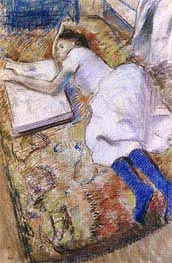
Giclée Paper Art Print
$52.15
$52.15
SKU: 11741-DEE
Hilaire Germain Edgar Degas
Original Size:99.1 x 67 cm
Private Collection
Hilaire Germain Edgar Degas
Original Size:99.1 x 67 cm
Private Collection
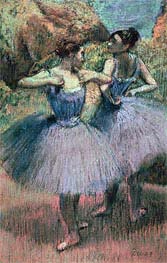
Giclée Paper Art Print
$52.15
$52.15
SKU: 11828-DEE
Hilaire Germain Edgar Degas
Original Size:45.5 x 20.5 cm
Public Collection
Hilaire Germain Edgar Degas
Original Size:45.5 x 20.5 cm
Public Collection
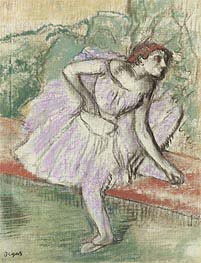
Giclée Paper Art Print
$52.15
$52.15
SKU: 11880-DEE
Hilaire Germain Edgar Degas
Original Size:63 x 48 cm
Private Collection
Hilaire Germain Edgar Degas
Original Size:63 x 48 cm
Private Collection
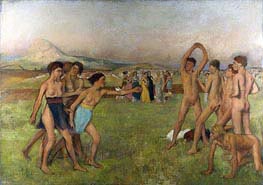
Giclée Canvas Print
$97.20
$97.20
SKU: 11180-DEE
Hilaire Germain Edgar Degas
Original Size:109.5 x 155 cm
National Gallery, London, UK
Hilaire Germain Edgar Degas
Original Size:109.5 x 155 cm
National Gallery, London, UK
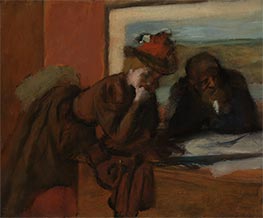
Giclée Canvas Print
$68.66
$68.66
SKU: 18634-DEE
Hilaire Germain Edgar Degas
Original Size:50.2 x 61 cm
Yale University Art Gallery, Connecticut, USA
Hilaire Germain Edgar Degas
Original Size:50.2 x 61 cm
Yale University Art Gallery, Connecticut, USA
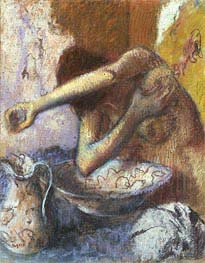
Giclée Paper Art Print
$52.15
$52.15
SKU: 11756-DEE
Hilaire Germain Edgar Degas
Original Size:unknown
Private Collection
Hilaire Germain Edgar Degas
Original Size:unknown
Private Collection
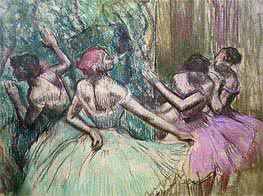
Giclée Paper Art Print
$52.15
$52.15
SKU: 11775-DEE
Hilaire Germain Edgar Degas
Original Size:80 x 110 cm
Private Collection
Hilaire Germain Edgar Degas
Original Size:80 x 110 cm
Private Collection
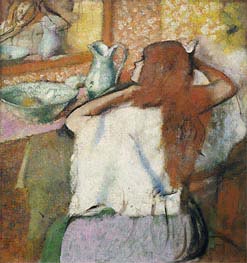
Giclée Canvas Print
$66.74
$66.74
SKU: 11781-DEE
Hilaire Germain Edgar Degas
Original Size:82.5 x 77 cm
Private Collection
Hilaire Germain Edgar Degas
Original Size:82.5 x 77 cm
Private Collection
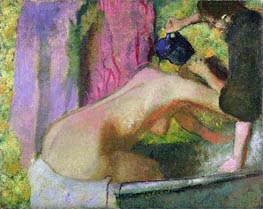
Giclée Canvas Print
$65.80
$65.80
SKU: 11790-DEE
Hilaire Germain Edgar Degas
Original Size:71.1 x 88.9 cm
Art Gallery of Ontario, Toronto, Canada
Hilaire Germain Edgar Degas
Original Size:71.1 x 88.9 cm
Art Gallery of Ontario, Toronto, Canada
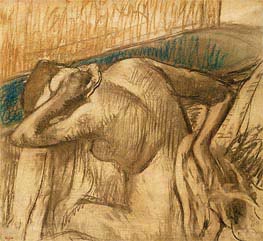
Giclée Paper Art Print
$52.15
$52.15
SKU: 11840-DEE
Hilaire Germain Edgar Degas
Original Size:66 x 71.4 cm
Private Collection
Hilaire Germain Edgar Degas
Original Size:66 x 71.4 cm
Private Collection
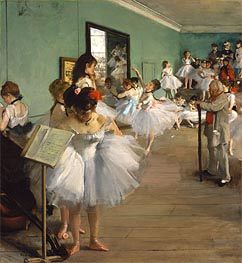
Giclée Canvas Print
$75.90
$75.90
SKU: 2811-DEE
Hilaire Germain Edgar Degas
Original Size:83.5 x 77.2 cm
Metropolitan Museum of Art, New York, USA
Hilaire Germain Edgar Degas
Original Size:83.5 x 77.2 cm
Metropolitan Museum of Art, New York, USA
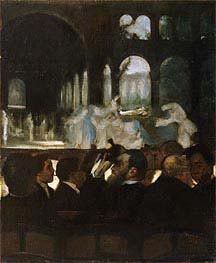
Giclée Canvas Print
$58.37
$58.37
SKU: 11212-DEE
Hilaire Germain Edgar Degas
Original Size:66 x 54.3 cm
Metropolitan Museum of Art, New York, USA
Hilaire Germain Edgar Degas
Original Size:66 x 54.3 cm
Metropolitan Museum of Art, New York, USA
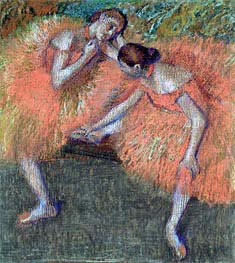
Giclée Paper Art Print
$52.15
$52.15
SKU: 11770-DEE
Hilaire Germain Edgar Degas
Original Size:95.5 x 87 cm
Galerie Neue Meister, Dresden, Germany
Hilaire Germain Edgar Degas
Original Size:95.5 x 87 cm
Galerie Neue Meister, Dresden, Germany
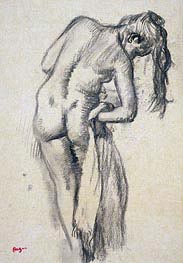
Giclée Paper Art Print
$52.15
$52.15
SKU: 11822-DEE
Hilaire Germain Edgar Degas
Original Size:35.2 x 25.4 cm
The Clark Art Institute, Massachusetts, USA
Hilaire Germain Edgar Degas
Original Size:35.2 x 25.4 cm
The Clark Art Institute, Massachusetts, USA
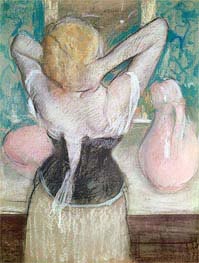
Giclée Paper Art Print
$52.15
$52.15
SKU: 11785-DEE
Hilaire Germain Edgar Degas
Original Size:unknown
Private Collection
Hilaire Germain Edgar Degas
Original Size:unknown
Private Collection
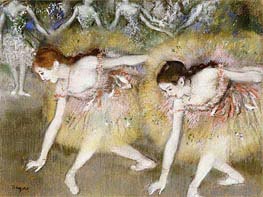
Giclée Paper Art Print
$52.15
$52.15
SKU: 11792-DEE
Hilaire Germain Edgar Degas
Original Size:unknown
Private Collection
Hilaire Germain Edgar Degas
Original Size:unknown
Private Collection
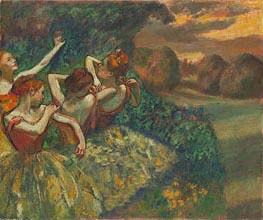
Giclée Canvas Print
$69.26
$69.26
SKU: 2852-DEE
Hilaire Germain Edgar Degas
Original Size:151.1 x 180.2 cm
National Gallery of Art, Washington, USA
Hilaire Germain Edgar Degas
Original Size:151.1 x 180.2 cm
National Gallery of Art, Washington, USA
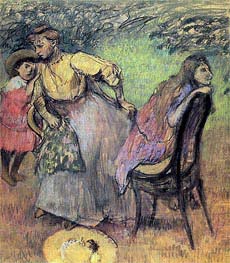
Giclée Paper Art Print
$52.15
$52.15
SKU: 11889-DEE
Hilaire Germain Edgar Degas
Original Size:160 x 141.5 cm
Petit Palais Musee des Beaux Arts, Paris, France
Hilaire Germain Edgar Degas
Original Size:160 x 141.5 cm
Petit Palais Musee des Beaux Arts, Paris, France
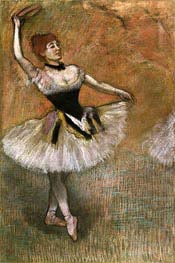
Giclée Paper Art Print
$52.15
$52.15
SKU: 11752-DEE
Hilaire Germain Edgar Degas
Original Size:unknown
Private Collection
Hilaire Germain Edgar Degas
Original Size:unknown
Private Collection
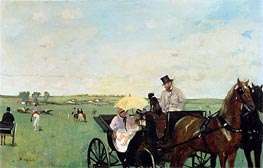
Giclée Canvas Print
$54.64
$54.64
SKU: 2822-DEE
Hilaire Germain Edgar Degas
Original Size:36.5 x 55.9 cm
Boston Museum of Fine Arts, Massachusetts, USA
Hilaire Germain Edgar Degas
Original Size:36.5 x 55.9 cm
Boston Museum of Fine Arts, Massachusetts, USA
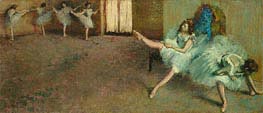
Giclée Canvas Print
$54.64
$54.64
SKU: 2853-DEE
Hilaire Germain Edgar Degas
Original Size:40 x 88.9 cm
National Gallery of Art, Washington, USA
Hilaire Germain Edgar Degas
Original Size:40 x 88.9 cm
National Gallery of Art, Washington, USA
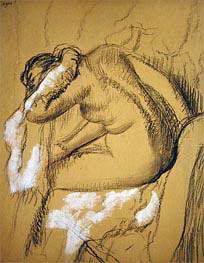
Giclée Paper Art Print
$52.15
$52.15
SKU: 11178-DEE
Hilaire Germain Edgar Degas
Original Size:unknown
Private Collection
Hilaire Germain Edgar Degas
Original Size:unknown
Private Collection
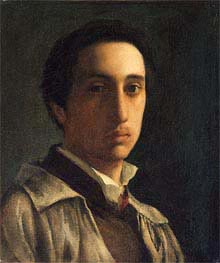
Giclée Canvas Print
$54.64
$54.64
SKU: 11211-DEE
Hilaire Germain Edgar Degas
Original Size:40.6 x 34.3 cm
Metropolitan Museum of Art, New York, USA
Hilaire Germain Edgar Degas
Original Size:40.6 x 34.3 cm
Metropolitan Museum of Art, New York, USA
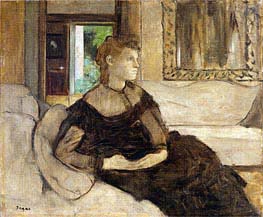
Giclée Canvas Print
$98.38
$98.38
SKU: 11214-DEE
Hilaire Germain Edgar Degas
Original Size:55.2 x 65.1 cm
Metropolitan Museum of Art, New York, USA
Hilaire Germain Edgar Degas
Original Size:55.2 x 65.1 cm
Metropolitan Museum of Art, New York, USA